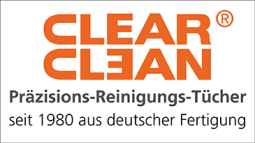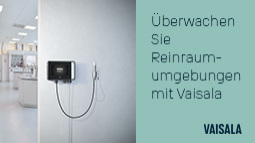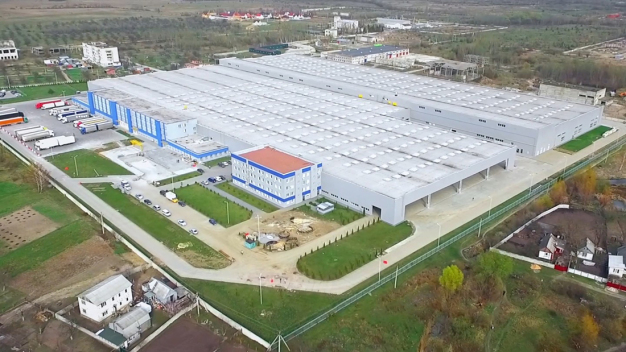- R+D & Community of Interest
Manufacturing successfully resumes after shut-down
The automotive suppliers Kromberg & Schubert planned to resume production activities with the help of Fraunhofer IPA. Protecting its customers and employees from coronavirus was the company’s highest priority right from the very beginning. The measures developed are currently being implemented at all 26 of its sites around the world.
Kromberg & Schubert Automotive GmbH & Co (abbreviation: Kroschu) is one of the world’s leading automotive suppliers. The company employs approximately 50,000 staff in 40 locations across 4 continents. Kroschu manufactures wiring systems and special cables, while it also provides plastics engineering for global brands such as Mercedes, VW and BMW. The coronavirus pandemic forced both Kroschu and its main customers around the world to suspend the majority of their manufacturing activities.
While the virus spread rapidly across the globe, Kroschu wasted no time in beginning to devise various scenarios as to how manufacturing could be resumed. Chief Operations Officer at Kromberg & Schubert, Dr. Thomas Lange-Stalinski, and Professor Thomas Bauernhansl, Director of the Fraunhofer Institute for Manufacturing Engineering and Automation IPA exchanged ideas as to how Kroschu could ensure that manufacturing resumed safely so that employees and customers would be protected from the virus. The aim was to leverage the expertise of Fraunhofer IPA in the fields of factory planning, logistics, value stream and automation to ensure that Kroschu could resume operations at all 26 manufacturing plants around the world quickly, efficiently and effectively, all the while providing high-level protection for its employees. For this to be made possible, measures had to be identified, defined and implemented. The aim was to guarantee the safety of both employees and customers while at the same time safeguarding the production capacity of Kromberg & Schubert and limiting to an absolute minimum the financial repercussions for the company and its employees. Thomas Bauernhansl describes the challenge posed by the task: »It was clear to us that manufacturing would not be able to resume to full capacity straight away. For us, it was crucial th at we achieved a responsible balance between the protection of employees and customers and production capacity«.
Task force develops online catalogue of measures
A further challenge was posed by the fact that on-site inspections and workshops were not possible. First of all, a task force was set up via videoconference. This contained experts from Fraunhofer IPA, employees from Kroschu HQ and several selected manufacturing plants. Photographic material and video footage helped the members of the task force to visualize the situation. They discussed which measures would be necessary on collaboration platforms. These ideas were then pooled and assessed in weekly online meetings in order to decide which ad-hoc measures were the most important. The IPA scientists had compiled some basic information on the causes, transmission methods and effects of coronavirus, which helped the task force to make the correct decisions. As a result, they were able to approve a standard catalogue of measures within a few days. The hands-on measures implemented during the first days included taking temperatures, managing transportation by bus, workplace design and risk analysis.
Value stream methods modified according to category of risk process A set of technical solutions was also developed at the same time; these are now being introduced at the plants to support the organizational measures. To this end, Fraunhofer IPA took methodological procedures from the value stream and expertise in factory planning, in terms of supplier management, for example, and applied these to the coronavirus situation.
The IPA experts from the Bayreuth Project Group Process Innovation supplemented the value stream concept, which covers all value-adding and non-value-adding activities in order to eliminate waste during the manufacturing process for a product, to include risk avoidance. Risk process groups were categorized as high, medium, low and zero risk (working from home), with working areas marked as red, yellow or green.
In addition, Fraunhofer-Austria developed measures for external partners such as suppliers, logistics and maintenance. Visitors must complete a self-disclosure and self-assessment before being permitted on site.
Finally, the measures were rolled out and implemented at all 26 plants. A delighted Chief Operations Officer Stalinski said: "The safety of our employees and customers is of the utmost priority. The methods and guidelines developed along with Fraunhofer IPA have given rise to a highly promising concept which we can use to resume manufacturing. Our customers have also confirmed that we acted quickly and with great foresight".
Project-turned-platform
Following the success of the project with Kroschu, Fraunhofer IPA together with Fraunhofer-Austria has set up a platform via which companies, alongside experts, can discuss and prepare ways in which they can safely resume production. The virtual CoLAB contains a pool of ad-hoc measures which ensure protection against the virus and working capacity. The Stuttgart-based production strategist David Maximilian Dörr summarizes the project: "While working on the ramp-up project with Kromberg & Schubert, we have observed that it is often simple yet well thought-out solutions which are the most helpful during the initial phase of manufacturing resumption." The scientists also work with the companies to develop strategies which lead to greater versatility both during and after the crisis. Michael Lickefett, Head of Factory Planning and Production Management at Fraunhofer IPA, highlighted: "In the Virtual CoLAB, we are guided by the question: How can we make companies more robust against events and external influences such as coronavirus?"
![]()
Fraunhofer-Institut für Produktionstechnik und Automatisierung IPA
Nobelstraße 12
70569 Stuttgart
Germany
Phone: +49 711 970 1667
email: joerg-dieter.walz@ipa.fraunhofer.de
Internet: http://www.ipa.fraunhofer.de









